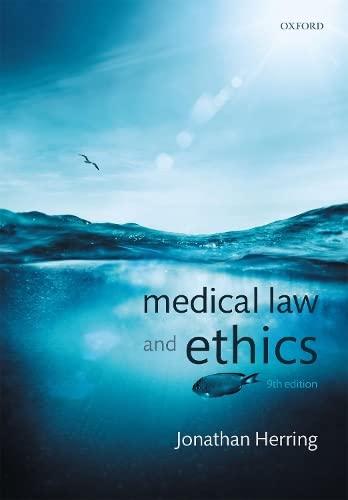Question
Charter Golf, Inc., manufactures and sells golf apparel and supplies. Dennis Mclnerney had worked as a Charter sales representative for about a year when he
Charter Golf, Inc., manufactures and sells golf apparel and supplies. Dennis Mclnerney had worked as a Charter sales representative for about a year when he was offered a position with one of Charter's competitors. Jerry Montiel, Charter's president, urged Mclnerney to turn down the offer and promised to guarantee him a 10 percent commission "for the remainder of his life." Montiel also promised Mclnerney that he would only be fired for dishonesty or disability. Three years later, Charter fired Mclnerney. Mclnerney sued Charter, alleging breach of contract. Charter argued that Montiel's promises were not enforceable because they were not capable of being performed within one year.
Does this contract fall within the Statute of Frauds? Why or why not?
Do you think that Mclnerney detrimentally relied on the employer's statements when he chose to continue working for Charter?
Should you enforce Montiel's promises under the doctrine of promissory estoppel? Why or why not?
How would you rule on this issue if you were the judge?
Step by Step Solution
There are 3 Steps involved in it
Step: 1

Get Instant Access to Expert-Tailored Solutions
See step-by-step solutions with expert insights and AI powered tools for academic success
Step: 2

Step: 3

Ace Your Homework with AI
Get the answers you need in no time with our AI-driven, step-by-step assistance
Get Started


